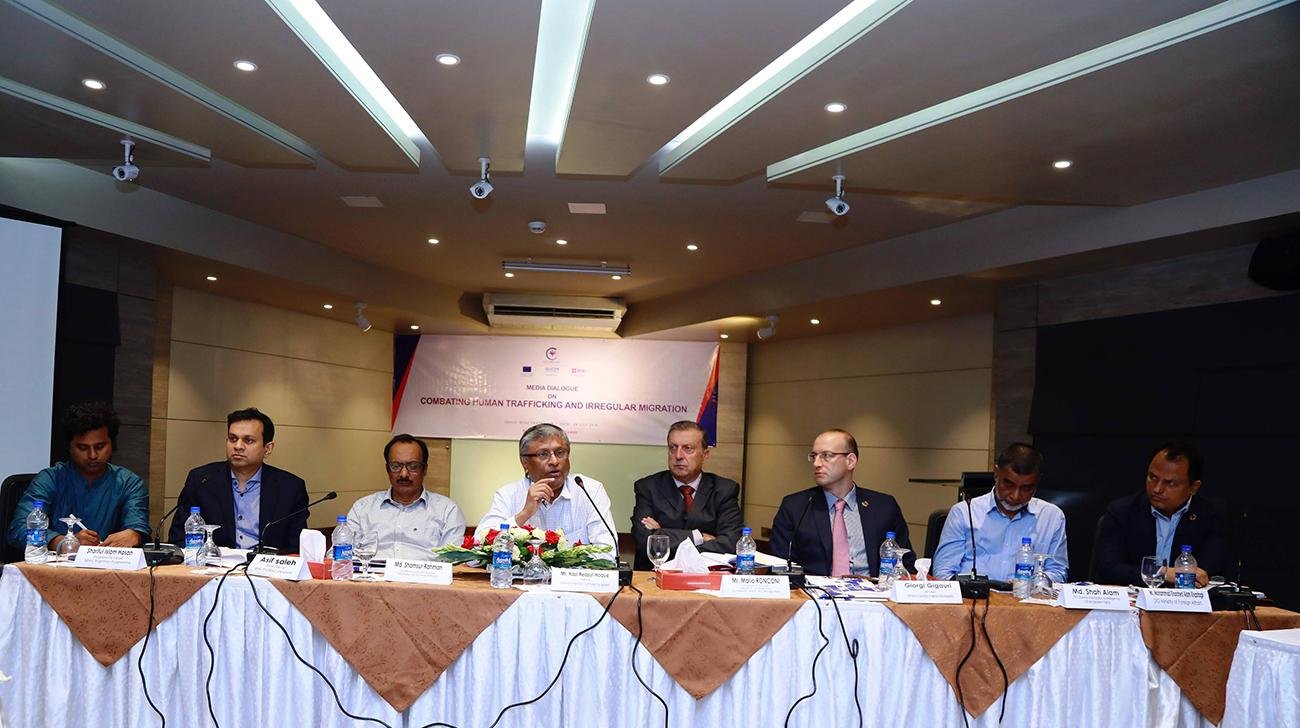Hindustan Surkhiyan Desk:Only 25 human traffickers were convicted in cases involving trafficking of some 7,840 people since Bangladesh enacted the Prevention and Suppression of Human Trafficking Act in 2012, a grim outlook that experts say encourages the crime to thrive.
“The government was supposed to set up seven human trafficking prevention tribunals, but those are yet to be done,” BRAC’s Migration Programme Head Shariful Islam said today, ahead of the World Day against Trafficking in Persons tomorrow.
Now, the Women and Children Repression Tribunals have been designated for the trial of human trafficking cases, he added.
“This culture of impunity is grooming crimes like human trafficking. If the perpetrators are not punished, people’s rights cannot be protected,” said National Human Rights Commission Chairman Kazi Reazul Hoque.
About 50,000 Bangladeshi girls are trafficked to or through India every year, according to a study by Indian Border Security Force.
Bangladesh came under spotlight during the Andaman crisis when mass graves of Rohingya and Bangladeshis were discovered in the Thai and Malaysian bordering areas in 2015.
Migration experts and officials expressed serious concern over the issue at a dialogue on human trafficking organized by BRAC Migration Programme with support from European Union (EU) and International Organization for Migration (IOM) at the BRAC Centre Inn in the city.
Addressing as chief guest, Kazi Reazul Hoque said Bangladesh enacted law, rules, national plan of action on prevention of human trafficking, but sadly the conviction rate is very low.
“Human trafficking is happening in the name of labour migration in many cases. The cases under human trafficking prevention law must see fast disposal. We want justice,” he said.
Shah Alam, Deputy Inspector General (special investigation & intelligence) of CID, said: “We failed to give strong message to the human traffickers. They know they can get away. So, they still thrive.”
Home Ministry’s Additional Secretary (political and ICT) Shamsur Rahman acknowledged the low conviction rate but said lack of evidence is a huge problem in prosecuting the traffickers.
IOM Chief of Mission Giorgi Gigauri said many of the Bangladeshi youths are desperate to go abroad and eventually fall prey to the human traffickers.
“Root causes of human trafficking need to be addressed. There should be livelihood options for them at home and security so that they don’t feel to go abroad,” he said.
Asif Saleh, senior director of BRAC, said they are working on ways to send workers abroad at low cost and establish a regional network to help the survivors of human trafficking.
























